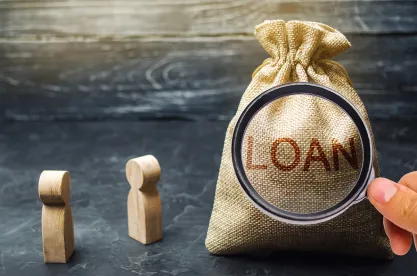The newly created House Select Subcommittee on the Coronavirus Crisis has launched a series of inquiries that will have lasting implications for recipients of the Coronavirus Aid, Relief, and Economic Security Act (CARES Act) funds. The Paycheck Protection Program (PPP), one of the largest and most visible of the CARES Act’s stimulus packages, has been an early focus of attention—and partisan rancor. In addition, the Department of Health and Human Services (HHS) Office of Inspector General (OIG) has disclosed 14 active investigations related to the CARES Act and also announced a wide-ranging strategic investigative plan designed to scrutinize recipients of CARES Act funds in the healthcare sector. Together, these actions signal the start of aggressive pandemic relief oversight and investigations from congressional committees and inspectors general across the federal government.
Investigations of Fund Recipients by Congress and the Select Subcommittee
On 23 April 2020, the House of Representatives voted to establish the Select Subcommittee on the Coronavirus Crisis (Select Subcommittee) and empowered it with extensive investigative powers to ensure the “efficiency, effectiveness, equity, and transparency of the use of taxpayer funds and relief programs to address the coronavirus crisis.”[1]
The Select Subcommittee has initially focused its attention on oversight of the CARES Act’s PPP, a new Small Business Administration (SBA) loan program intended to provide economic relief to small businesses adversely impacted by COVID-19.[2] Under the leadership of Select Subcommittee Chair and Majority Whip Jim Clyburn (D-SC), the Select Subcommittee’s first official act was to send letters seeking that certain public companies that received PPP loans of $10 million or more justify their eligibility for the funds.[3] The Republican response to this Democratic initiative was swift and critical and urged the Select Subcommittee to focus on investigating the Chinese government’s response to the pandemic, not demand the return of PPP loans that could result in the loss of hundreds of jobs.[4] Meanwhile, one of the targeted companies returned its PPP loan, while others continue to be under scrutiny.
The PPP is one of the largest and most visible economic relief programs created by the CARES Act, and it is inevitable that the Select Subcommittee, enforcement agencies, the IG community, and the other oversight bodies created by the CARES Act will continue to make the PPP a top priority in coming months. As of 2 June 2020, approximately 5,400 participating lenders have processed 4,475,000 PPP loans—more than $510 billion of the total $660 billion appropriated to guarantee PPP loans.[5]
Interest in the program’s vast disbursements is intense throughout the government. As early as 17 April 2020, Senate Democrats wrote to the SBA and the Department of the Treasury demanding detailed PPP loan data.[6] In addition, House and Senate Democrats have introduced several PPP-related bills that would have required the SBA to release information about recipients of loans under the PPP, Economic Injury Disaster Loan Program, and Debt Relief Program—information that is also being sought by the press and watchdog organizations pursuant to the Freedom of Information Act.[7] That information may draw attention to any number of private entities who might then be caught up in investigations.
This partisan divide between congressional Democrats seeking oversight over the Republican administration could have consequences for businesses and individuals who come under scrutiny related to their receipt or use of CARES Act funds. These types of oversight investigations send a mixed message to witnesses and targets. Businesses that seek to provide factual information could risk getting caught in a tug-of-war between majority and minority members. Moreover, the Select Subcommittee Chair’s extensive powers—including the authority to issue subpoenas for both documents and testimony, to compel witnesses to furnish information via interrogatories, and to order depositions—will enable robust oversight of participants in pandemic-related funding programs for years to come.[8]
Investigations of Fund Recipients by the Executive Branch
Department of Justice
While a congressional investigation cannot directly result in a criminal prosecution—the matter has to be referred to the Department of Justice—investigations by executive branch agencies can. On 15 May 2020, the Department of Justice issued grand jury subpoenas to several of the largest PPP lenders, which presages the beginning of a large-scale criminal probe of the program that will scrutinize not only borrowers but may potentially lead to examination of the conduct of PPP lenders, notwithstanding the statutory “hold harmless” guarantee designed to insulate banks from fraud committed by borrowers.[9]
Department of Health and Human Services
In the first of what may be several industry-specific investigations, on 26 May 2020, the acting head of the HHS OIG announced at a Select Subcommittee hearing the agency’s Coronavirus Strategic Plan[10] for investigating recipients of CARES Act funds. Among other things, HHS revealed the following specific areas of emphasis:
-
14 active COVID-19-related reviews and dozens of additional topics in development.
-
Evaluation of HHS beneficiaries in selected healthcare settings, such as nursing homes and child care as a follow up of its audit of infection prevention and control program deficiencies at more than 15,400 Medicare- and Medicaid-certified nursing homes throughout the United States.[11]
-
An aggressive agenda for COVID-19-related audits, administrative enforcement, and referrals to congressional committees, federal and state law enforcement, and agency partners—including the Pandemic Relief Coordinating Committee, which we have described previously[12] —that will use advanced data analytics to drive its investigations of waste, fraud, and abuse that affect agency programming and beneficiaries.
-
Disbursement of $50 billion through the Provider Relief Fund, with the possibility of examining the methods by which HHS determined how funds should be distributed following reports that wealthy hospitals received hundreds of millions of dollars from the fund while smaller, poorer hospitals received little.[13]
-
The Food and Drug Administration’s role in facilitating testing and dissemination of test kits, among other topics.
-
Award procedures for research and development contract issued by the Biomedical Advance Research Authority.
-
Acquisition, management, and distribution of resources from the Strategic National Stockpile; production, approval, and distribution of COVID-19 tests; and programs related to vaccine and treatment research and development.
There is little doubt that private entities involved in these programs could well be summoned as witnesses before congressional committees especially if there is resistance on the part of government agencies to provide information.
How Should the Private Sector Prepare?
Each private entity that gets drawn into these investigations needs to carefully tailor its preparation and response based on its circumstances. As a general matter, potential targets of congressional investigations should focus on:
-
Proper preparation before receiving a congressional inquiry since the luxury of time may not exist once the committee makes a demand for information;
-
Understanding how congressional investigations differ from agency investigations and how one can impact the other;
-
Understanding the intersection of political investigations and investigations conducted by regulatory or enforcement agencies;
-
Evaluating and negotiating the unique risk environment created by congressional investigations
As restrictions ease and economic activity resumes, congressional inquiries are likely to broaden and multiply given the massive amount of federal relief funding at issue.
[1] H.Res. 935 § 3(a)(1), 116th Cong. (2020). For names of the Members of Congress appointed to the Select Subcommittee see Press Release, “Pelosi Names Select Members to Bipartisan House Select Committee on the Coronavirus Crisis” (Apr. 29, 2020), available at https://www.speaker.gov/newsroom/42920. Chris Marquette, McCarthy Names His Picks for Coronavirus Select Committee, Roll Call (May 7, 2020), available at https://www.rollcall.com/2020/05/07/mccarthy-names-his-picks-for-coronavirus-select-committee/.
[2] Please visit K&L Gates’ Responding to COVID-19 Hub for in-depth analysis of the PPP and related regulatory and legal developments.
[3] Press Release, “In First Official Action, House Coronavirus Panel Demands That Large Public Corporations Return Taxpayer Funds Intended For Small Businesses” (May 8, 2020), available at https://coronavirus.house.gov/news/press-releases/first-official-action-house-coronavirus-panel-demands-large-public-corporations.
[4] Press Release, “Coronavirus Subcommittee Republicans Criticize Democrats for Attacking American Businesses Instead of Holding China Accountable” (May 18, 2020), available at https://republicans-oversight.house.gov/release/coronavirus-subcommittee-republicans-criticize-democrats-for-attacking-american-businesses-instead-of-holding-china-accountable/.
[5] Small Business Administration Cumulative Paycheck Protection Program Data, available at https://www.sba.gov/funding-programs/loans/coronavirus-relief-options/paycheck-protection-program (accessed on June 2, 2020).
[6] See Letter from Sen. Benjamin Cardin et al. to Hon. Steven Mnuchin et al. (Apr. 17, 2020), available at https://www.sbc.senate.gov/public/_cache/files/d/8/d8e32c58-d0c9-4bd2-a022-188680dc80e9/0EF809C9847CBF95A71D3ECBECD5DF8F.newdataletter417.pdf.
[7] See, e.g., Transparency and Oversight of COVID–19 Small Business Assistance Act, S. 2604, 116th Cong. (2020), available at https://www.govtrack.us/congress/bills/116/s3604/text; Small Business Transparency and Reporting for the Underbanked and Taxpayers at Home Act, H.R. 6782, 116th Cong. (2020), available at https://www.congress.gov/bill/116th-congress/house-bill/6782/text.
[8] H.Res. 935 § 4, 116th Cong. (2020).
[9] Koh Gui Qing & Peter Schroeder, Exclusive: U.S. Justice Department Subpoenas Wall Street Banks for Small Business Loans Info, Reuters (May 15, 2020), available at https://www.reuters.com/article/us-usa-doj-banks/exclusive-u-s-justice-dept-subpoenas-wall-street-banks-for-small-business-loans-info-sources-idUSKBN22R3EZ.
[10] OIG Strategic Plan: Oversight of COVID-19 Response and Recovery (May 2020), available at https://oig.hhs.gov/about-oig/strategic-plan/COVID-OIG-Strategic-Plan.pdf.
[11] U.S. Department of Health and Human Services Office of Inspector General, Audit of Nursing Home Infection Prevention and Control Program Deficiencies, available at https://oig.hhs.gov/reports-and-publications/workplan/summary/wp-summary-0000471.asp.
[12] See K&L Gates’ recent U.S. Congressional Investigations Alert, “COVID-19: Congressional Investigations and Pandemic Relief Oversight Mechanisms,” available at https://www.natlawreview.com/article/covid-19-congressional-investigations-and-pandemic-relief-oversight-mechanisms.
[13] Press Release, “HHS IG Briefs Committee on Coronavirus Oversight Work” (May 26, 2020), available at https://oversight.house.gov/news/press-releases/hhs-ig-briefs-committee-on-coronavirus-oversight-work.




 />i
/>i

